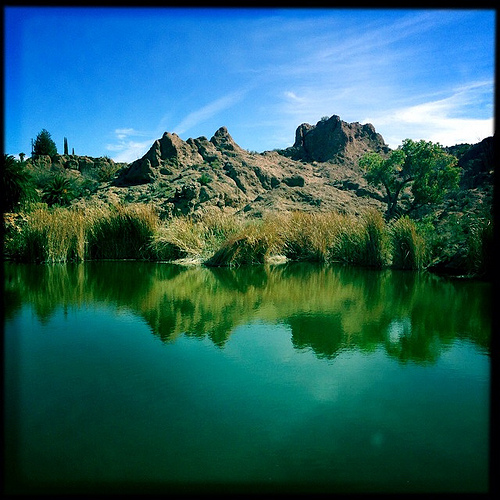

Blessed are those whose strength is in you,
who have set their hearts on pilgrimage.
As they pass through the Valley of Baca,
they make it a place of springs;
the autumn rains also cover it with pools
They go from strength to strength,
Till each appears before God in Zion.
Reflection
Everything in life bends toward change, which is why I suppose there are so many travel narratives in the Christian Bible. In fact, the world “pilgrimage” in Psalm 84 is more literally translated as “highways” or “paths”—blessed is he whose heart is set on travel.
But the truth is, the travel of the pilgrims in Psalm 84 looks nothing like the travel that I’m used to. In my experience, travel is an uncomfortable business, filled with lumpy beds and exhausting days. On a recent hiking trip down Oregon’s Rogue River, I battled an unrelenting summer sun, rattlesnakes warming themselves by the path, and rock cliffs that plunged a sheer forty feet into the rapids below. In a less literal mode, my personal and professional journey has taken me through punishing research and teaching schedules, challenging job searches, and multiple cities. Rather than go from strength to strength, I often feel like I’m just barely crawling forward. What is it that makes the pilgrims’ journey so effortless?
Perhaps it is the land they travel through. I looked up the Valley of Baca, and found out that the word is likely related to the root word “to weep.” That much, at least, is familiar. Even the pilgrims of Psalms 84 can’t quite escape the landscape of sorrow in their journey. But before their eyes, they watch it transform into a place of springs, salt tears morphed into the thirst-quenching rains of autumn. In fact, the word for “pools” in verse six can also be translated as “blessings.” More than “happiness” or “contentment,” the word “blessing” indicates a turning over of the day-to-day world from ordinary to divine, from senselessness to purpose. To bless something is to make it holy.
This turning from ordinary sorrow to extraordinary holiness is what injects the Psalms with its breathtaking vigor, what reminds us that in the Christian journey, everything runs a course of reversal: the humble are raised up, the first made last, lions sleep with sheep. Why not sorrows transformed to blessing? Why not the exhausting rigors of journey transmuted to a jumping forward, from one strong place to another?
There are two other things that set the travel in this Psalm apart from the travel I’ve become accustomed to: the pilgrims do not journey alone, and they are not without a home. Often, I associate journey with exile or wandering. And certainly in the modern sense of pilgrimage, we often do tend to picture the lone traveller wandering foreign lands in search of answers or redemption. While there are plenty of solitary moments in the Bible, I have begun to suspect that the larger journey of the Christian life is insistently communal: it is a race overseen by witnesses, a pilgrimage travelled with an adoptive family, a many-branched tree. This makes intuitive sense to me, because what is home if not the place of the family? What is home without the people we love? And where are we travelling, but home?
Now, as I begin to look forward to a new academic year, a new set of deadlines, a new stretch of path to travel down, I’m glad I have Psalms 84 cheering me on. I need to be reminded not to linger too long in any one place, to move forward, to grow. I need to remember where my home is—the promise that transforms tears into waters of blessing.
Prayer
God, when I wander through sorrow, open my eyes to the pools of blessing around me. When I am tired, let me draw comfort from those who travel with me. Help me to remember that I travel by your strength, and let my steps always walk the path that will carry me home. Amen.
Jayme M. Yeo is Associate Professor of English at Belmont University. She teaches and writes about poetry, Shakespeare, and prison education, and she is currently working on the history of Shakespeare in the regional American South. She has been awarded grants from the National Endowment for the Humanities, the Folger Shakespeare Library, and the Whiting Foundation and her work appears in journals and anthologies including Shakespeare Bulletin, Shakespeare and the Pedagogies of Justice, and The College English Association Forum. When not reading or thinking about Shakespeare, she enjoys hiking the mountains of Middle Tennessee with her husband and son.

Leave a Reply